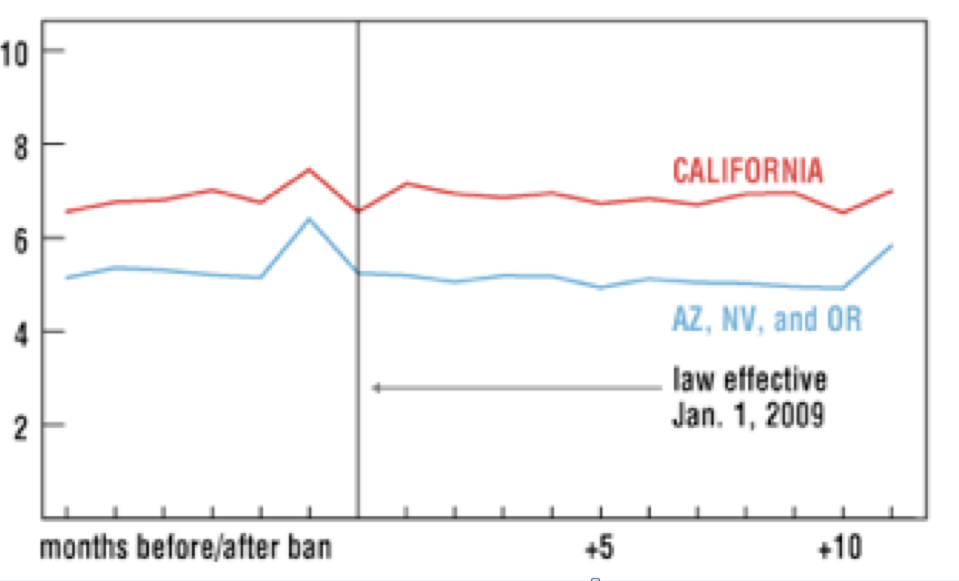 Professor John Adams has spent quite some years in researching, thinking, talking and writing about risk, and about risk when it comes to how people get around in their daily lives. This posting is taken from his blog “Risk in a hypermobile world” His attraction to transport problems grew out of his involvement in the 1970s and 80s as an objector at public inquiries, on behalf of Friends of the Earth, to the British Government’s road building plans. See “Hypermobility: too much of a good thing” for a summary of his current take on transport problems.
Professor John Adams has spent quite some years in researching, thinking, talking and writing about risk, and about risk when it comes to how people get around in their daily lives. This posting is taken from his blog “Risk in a hypermobile world” His attraction to transport problems grew out of his involvement in the 1970s and 80s as an objector at public inquiries, on behalf of Friends of the Earth, to the British Government’s road building plans. See “Hypermobility: too much of a good thing” for a summary of his current take on transport problems.
Change has to take root in people’s minds (before it can be legislated)
- John Adams. Full original text and blog here.
The main headline in today’s Daily Mail reads:
£90 fine if you’re texting at the wheel: Minister warns of safety crackdown
US experience suggests that the crackdown is unlikely to achieve its desired effect. There the success of attempts to deal with the texting-while-driving problem by means of legislation has been the subject of a number of natural experiments. In the US such laws are a matter of state jurisdiction and some states have passed laws while others have not. This has permitted before-law and after-law comparisons of states that passed laws with adjacent states that did not.
The results were interesting. A study by the Highway Loss Data Institute in 2009 found that banning texting while driving had a perverse effect – crashes increased. The HLDI explanation for the this result was that after the ban texters texted with their phones in their laps – where they were less visible to the police – rather than on the steering wheel as before, with the result that they were even more distracted from the driving task. Here is the result for California.

California – Collision claims per 100 insured vehicle years, by month before and after law for all drivers, compared with Arizona, Nevada, and Oregon.
As philosopher Michael Sandel has observed, “Change has to take root in people’s minds before it can be legislated.” Nowhere is this more obvious than on the road. Countries in the early stages of motorisation have death rates per vehicle many times higher than those of highly motorised countries. And yet most of them have on their statute books the full panoply of imported road safety legislation – from seat belt laws and speed limits to bans on drinking and driving. These laws are simply not enforced, not obeyed, or both.
# # #
About the author:
Emeritus Professor of Geography at University College London, John Adams blogs at http://www.john-adams.co.uk/ and can be reached at john.adams@ucl.ac.uk
 I was a member of the original Board of Directors of Friends of the Earth in the early 1970s and have been involved in debates about environmental issues ever since. I am intrigued by the persistence of attitudes to risks. For the past 30 years, the same arguments, slogans and insults have been shouted past each other by the participants (or their descendants) in disputes about issues for which conclusive evidence is lacking. My current work on both risk and transport issues seeks to understand these attitudes and the reasons for their persistence, in the hope of transforming shouting matches into more constructive dialogues.
I was a member of the original Board of Directors of Friends of the Earth in the early 1970s and have been involved in debates about environmental issues ever since. I am intrigued by the persistence of attitudes to risks. For the past 30 years, the same arguments, slogans and insults have been shouted past each other by the participants (or their descendants) in disputes about issues for which conclusive evidence is lacking. My current work on both risk and transport issues seeks to understand these attitudes and the reasons for their persistence, in the hope of transforming shouting matches into more constructive dialogues.A bit more on John's latest offerings that challenge our thinking on "risk":
- http://www.john-adams.co.uk/2013/04/03/now-wash-your-hands/
- http://www.john-adams.co.uk/2013/05/09/the-ever-receding-yet/
- http://www.john-adams.co.uk/2013/04/17/the-boston-marathon-bombs/
And on cost benefit analysis:
# # #
 Print this article
Print this article



Reblogged this on Nuova Mobilità.
ReplyDelete